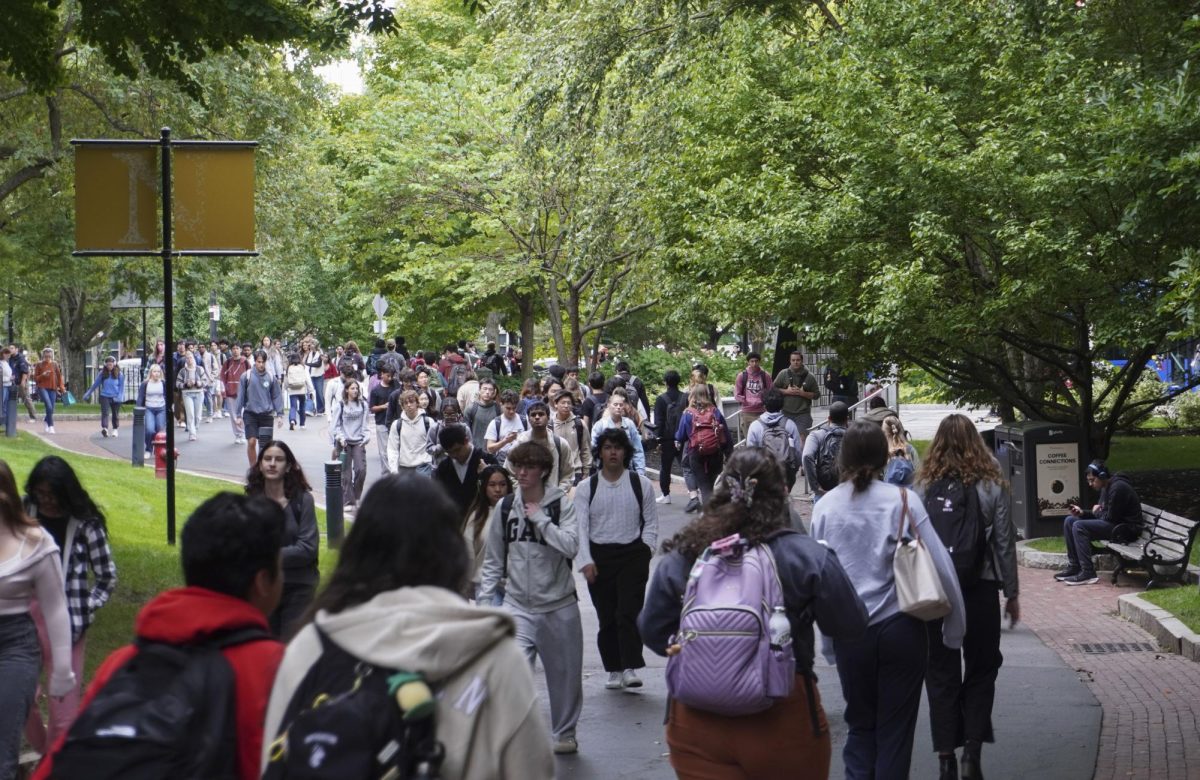By Gal Tziperman Lotan and Jeanine Budd
A new proposal intended to shake undergraduate college students out of crammed off-campus apartments won unanimous approval yesterday by the nine members of the Boston Zoning Commision (BZC). The ordinance was spearheaded by City Councilor Michael Ross, who represents Mission Hill, a neighborhood densely populated by Northeastern, Wentworth Institute of Technology and Massachusetts College of Art and Design students, and others. He said the ordinance was designed to lower rents and create more affordable housing for families.
Now, Mayor Thomas Menino’s office is working with the Inspectional Services Department on the logistics of enforcing the proposed rule. It will become law as soon as Menino signs it, which he is expected to do as he authored a letter in support of the proposal earlier this week.
This proposal received unanimous support from City Council and the Boston Redevelopment Authority’s approval.
But some skeptics at the public hearing preceding the vote said the proposed ordinance may only force a wealthy student population to expand into even more neighborhoods and cause problems for responsible property owners.
“It’s falsely based. … They should be enforcing the existing laws,” said Oscar Brookins, an economics professor at Northeastern who owns and rents property in the area. “Where are students going to go? It has a potential of expanding the number of housing units in the neighborhood that students will take over. And it’s going to come to pass that, say you have a house which is five or six bedrooms, the one I live in is eight, so how am I supposed to deal with this limit of four?”
Brookins said the Northeastern administration is supporting the proposal because it’s in the institution’s interest: The squandering of housing possibilities in the city means more students will opt to pay the university to live in a residence hall.
Still, Ross maintains: “We’re saving Mission Hill from losing all its residents.” He referred to the neighborhood as a “housing factory” that should be preserved for families and young professionals in the neighborhood.
The bill has been supported by more than 33 groups and organizations, Wentworth, Northeastern and 13 neighborhood associations, Ross said.
Ross said the change will not be unique to Boston: Newark, Del., and Bowling Green, Ohio, have similar laws limiting apartments to three post-secondary students; Bloomsburg, Penn, only allows two in each unit.
The ordinance would not limit the number of unrelated non-students living together, including tenants in their late teens or early 20s who are not enrolled in college, Ross said.
However, some critics, like Lenore Monollo-Schloming, president of the Boston-based Small Property Owners of America, said this would be difficult to enforce.
“They can’t go barging into people’s houses without a warrant,” she said. “They don’t have the staff or the money.”
The amendment could also be too narrow, meaning it applies to an overly specific group of people, which would make it unconstitutional, she said. The Small Property Owners of America members have taken action to no avail by e-mailing the zoning board, making phone calls and making sure others that oppose the amendment attended the meeting yesterday.
Oppositional students also attended the hearing to stand up against the proposal. Northeastern’s Student Government Association President Joey Fiore voiced aversion to it.
“I do not support students with their raucous and inconsiderate behavior,” Fiore said. But students “will be displaced if this amendment passes. There are many students who cannot be here today because of classes, and they are urging you to please not enforce this legislation. While some landlords have crammed students into their properties, there are plenty of properties out there with ample space for six students or more.”
One Northeastern student, Mark Corsillo, sent a message to a Facebook group to rally students to the meeting, although less than ten attended.
“The City Council really picked a great time for this hearing to get a biased showing where students would probably be too busy to attend,” the sophomore sociology major said. “You might not care about this right now, but if this goes through, it’ll affect all of us for the next few years we’re here.”
On the other hand, some college students at the zoning board hearing, like Northeastern junior Timbah Bell, a member of the student group STOP Unethical Expansion, have taken the city’s side.
“The [university] needs to keep in mind that they are affecting the communities with every decision that it makes,” said Bell, a journalism major. “I think that not supporting this amendment is not supporting the communities and not allowing them to continue to exist in the way that they do.”
Students on campus, who had not heard of the amendment before, had mixed opinions.
“I don’t know much about it, but my initial reaction is that it’s Boston’s way to try and improve the quality of living,” said Lauren Chapman, a senior chemistry major.
Chapman, who lives in a Mission Hill duplex with one roommate, said she has “seen the way six people cram themselves into one house, and I’m sure it’s not up to the standards that Boston is looking for.”
For the property owners, real estate brokers and students in the area, Ross said, “You can’t make good public policy based on the profit of few. Some people took a real gamble, buying expensive houses that they cannot afford to mortgage on without putting five, or six, or seven students in them. We can’t make public policy decisions based on their poor business decisions.”









